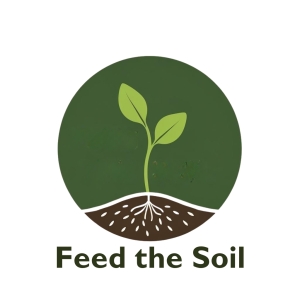
Contract Period : 01/02/2024 - 31/12/2026
Main Funder : Rothschild Foundation, Mark Leonard Trust, Big Give Champion - The Reed Foundation, anonymous donor via Charities Aid Foundation, individual donors via the Big Give Green Match Fund.
ORC Staff Contact : Dr Catriona Willoughby
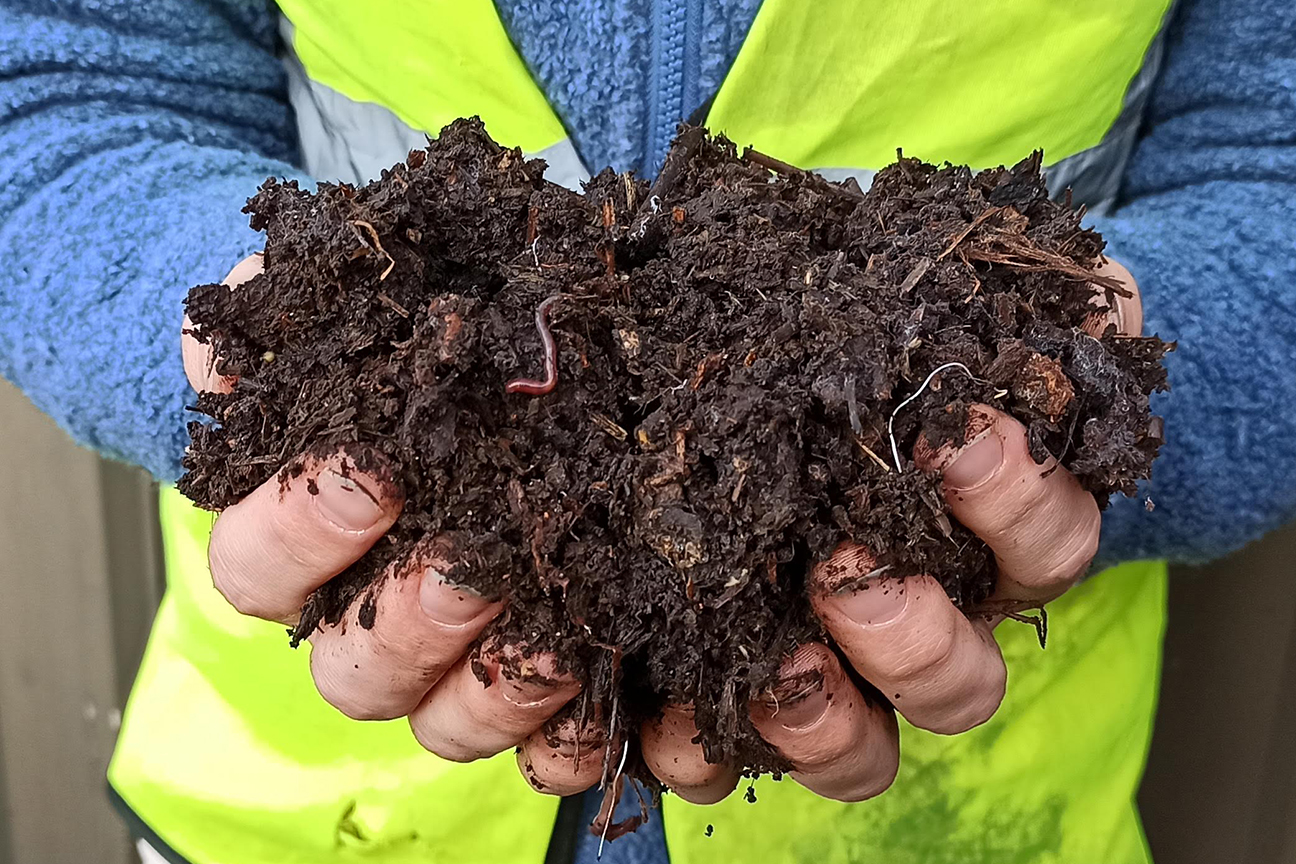
The Problem: In the UK, 6 million hectares are at risk of soil compaction and erosion. This soil degradation increases drought, flooding risk, water pollution, threatens biodiversity and reduces the soil’s ability to sequester carbon. UK soils currently hold around 9.8 billion tonnes of carbon, only around half of their carbon-storing potential. Poor soil health can also negatively affect food quality, which in turn can be linked to chronic diseases. Action is urgently needed to restore the UK’s soil.
Our Vision: to create a leading research and knowledge hub for innovative organic waste management, empowering farmers to feed the soil, grow healthy plants, and build resilient cropping systems.
Feed the soil, not your plants, has been a mantra of the organic farming movement since its inception in the last century. Composted organic waste is a key input to provide food to soil organisms and build soil health and fertility in organic systems. Recent growing interest in soil health and best management practices among conventional farmers has renewed interest in compost and its products (e.g. extracts, compost teas). Advocates for different composting systems and uses of the final product promote composting as a way to improve soil microbial diversity and function, sequester carbon, reduce reliance on herbicides and fungicides, and improve nutrient supply to the crop. In addition to these benefits, composting provides a way to reduce the volume of organic wastes prior to application and stabilise volatile nutrients in forms that pose less risk to the environment.
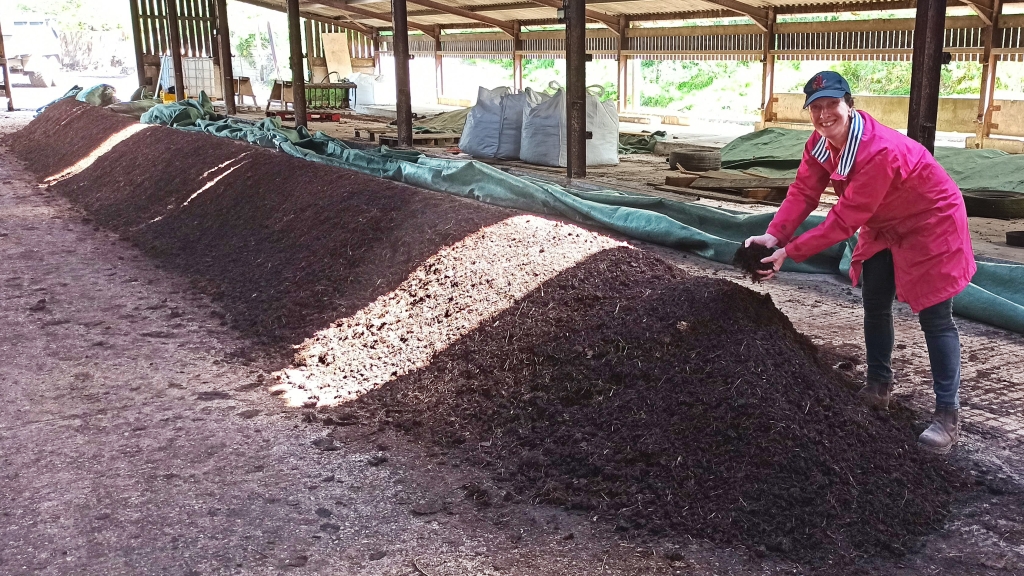
Project Leaders and Partners
There is a lack of practical advice developed in real-world conditions in the UK on the best way to compost organic wastes and apply it (or its products) to produce a biologically active product to feed the soil. To address this gap will require a comparison of different composting methods and application strategies under robust, controlled, conditions, on a network of farms, so that some clear guidance for farmers can be developed.
Specific questions to be answered include:
In Phase 1 of the project (1/2/24 to 30/6/2024) we reviewed the current state of scientific knowledge from around the world on the diverse ways that farmers can compost organic waste to produce high quality organic soil amendments. We identified topics where there is still a need for more evidence and demonstration of benefits in the UK.
In Phase 2 (from 1/8/2024 to 31/12/2026), in partnership with The Land Gardeners, we will collaborate with farmers around the UK to co-create trials answering their questions about optimising compost production in their systems. We’ll be studying bokashi (lactic acid fermentation of manures) as a novel way to stabilise manure and produce a biologically active amendment. Vermicomposting, which can result in compost with higher levels of available nutrients will be investigated. Johnson-Su bioreactors and the use of extracts from these systems will be explored. And methods originating in biodynamic farming systems (e.g. controlled microbial composting) will be tested.
Our ultimate aim is to produce practical guidance on how to optimise composting methods within your system. Watch this space for more updates as we establish our on-farm studies and set-up a knowledge hub in the coming months.
ORC is leading the research activities within this project and working in partnership with The Land Gardeners to produce knowledge exchange materials and run events.
In April and May we have been visiting farms as part of the project. At Southfield Farm in Northumbria we learned more about their innovative methods of making vermicompost and saw the production of vermicompost containers, and the prototype in action on the farm.
The vermicompost produced at Southfield will be analysed this year as part of the project. Results will be used to generate practical advice for land managers looking into the opportunities offered by compost management.
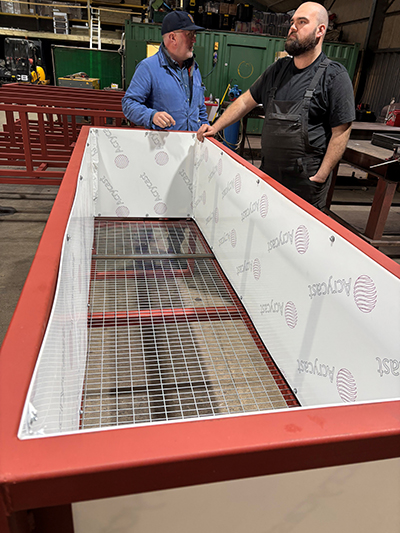
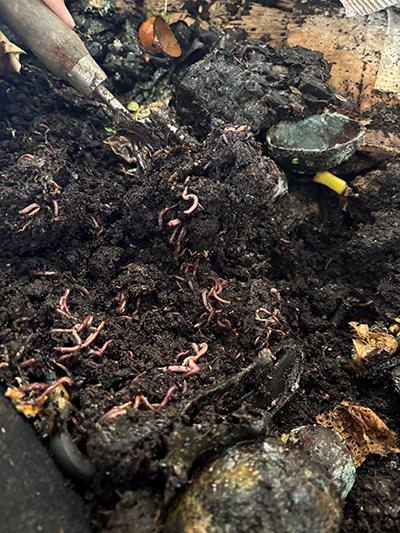
Julia and Catriona were also able to see the bokashi inoculant used in the composting of their farmyard manure (FYM) being made, find out how it works at Southfield, and hear about the practical benefits for the soil and the farm.

Also in April, researchers at the Organic Research Centre were able to report back the results of compost analysis to project participants who had provided compost samples using a range of feedstocks and production methods. The findings will be collated into a factsheet on different types of compost.
For four decades, the Organic Research Centre (ORC) has pioneered compost research. Isi Mackintosh’s article reveals ORC’s journey, from introducing on-farm composting in the 90s to the groundbreaking “Feed the Soil” project. Discover how ORC is developing practical, real-world advice for farmers on optimizing compost use.
Explore the mini database of past research linked in this article on stockless farming, nutrient cycling, and even compost teas. Learn about the latest “Feed the Soil” initiative, partnering with The Land Gardeners to revolutionize organic waste management. Read the full article and cultivate your knowledge of healthy soils!
We visited Northumberland farmer Guy Douglas to see his bokashi composting and vermicomposting in action. A starter solution of microorganisms is sprayed onto the animal’s bedding just before spreading straw and the animals trample it in. The fermentation process breaks down the lignin and cellulose in the straw very quickly making it ready for use almost immediately on mucking out. Watch this space for news on trials with bokashi.
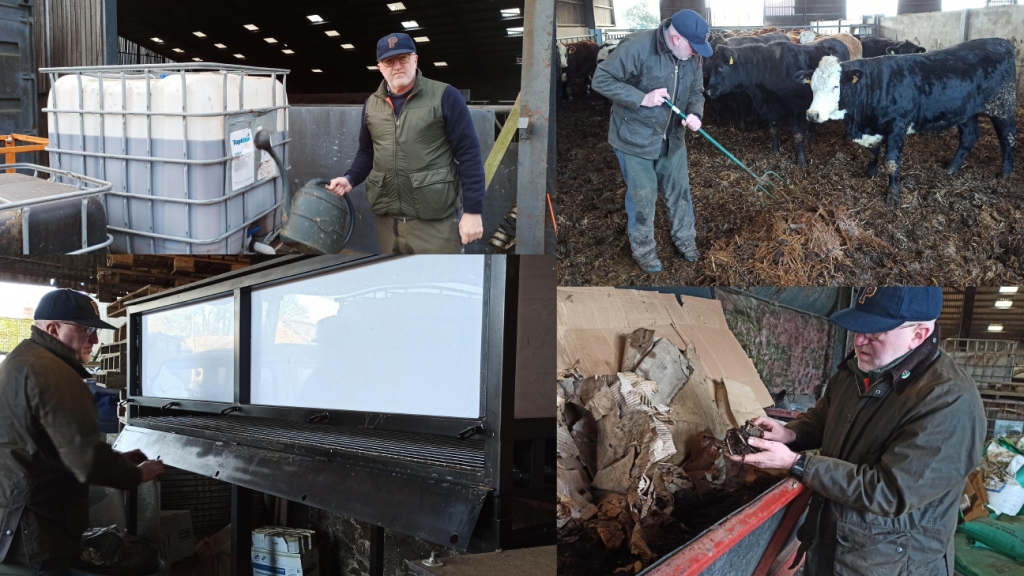
We also visited salad growers G’s in Cambridgeshire to see their large scale Johnson-Su bioreactor trial that aims to enable the proliferation and application of soil microbes that thrive in lower disturbance environments.
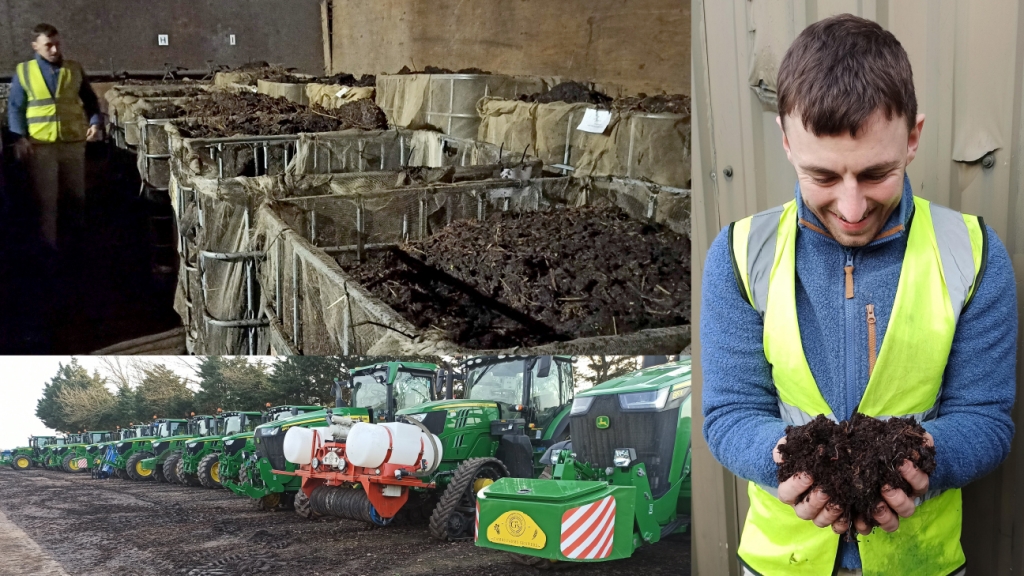
The team is currently visiting composting practitioners and documenting the wide range of systems in use in the sector. The most appropriate analytical techniques to assess compost quality are being evaluated. This work will form the foundation for the experimental work to be conducted in 2025 and 2026.
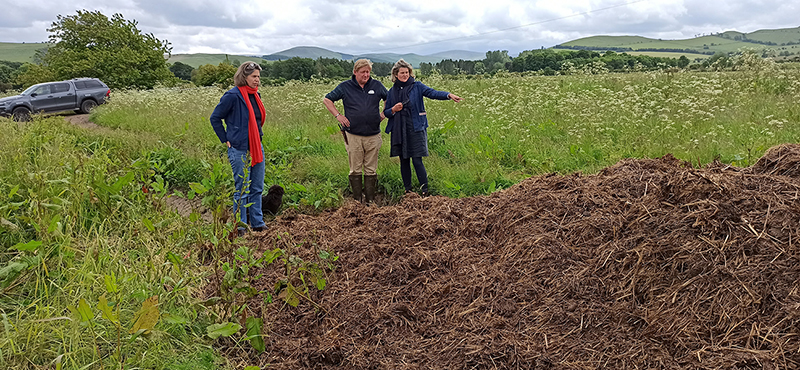
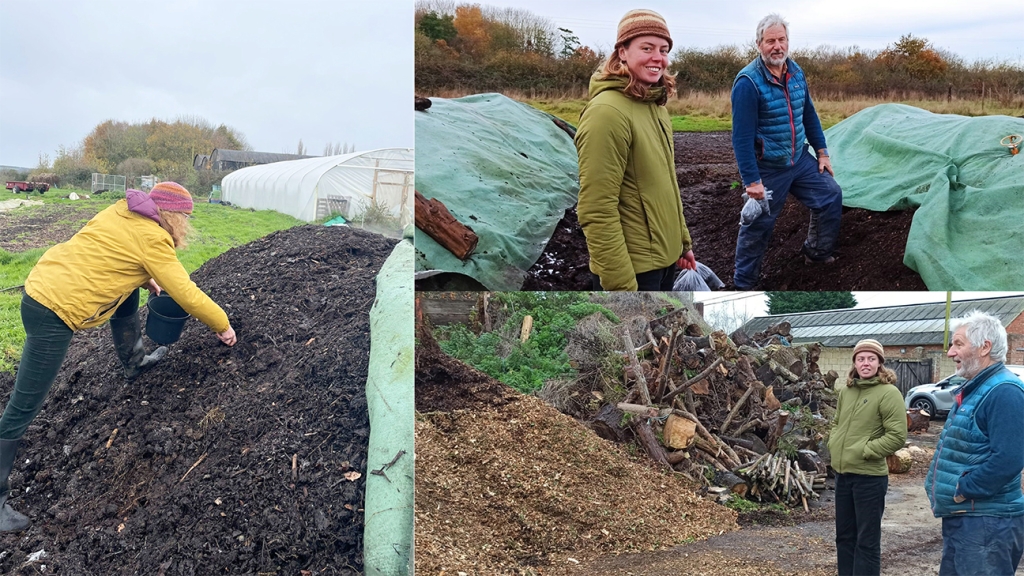
Phase 1 of the project completed, with a detailed review of “Novel on-farm composting systems for regenerative agriculture” now undergoing peer-review.
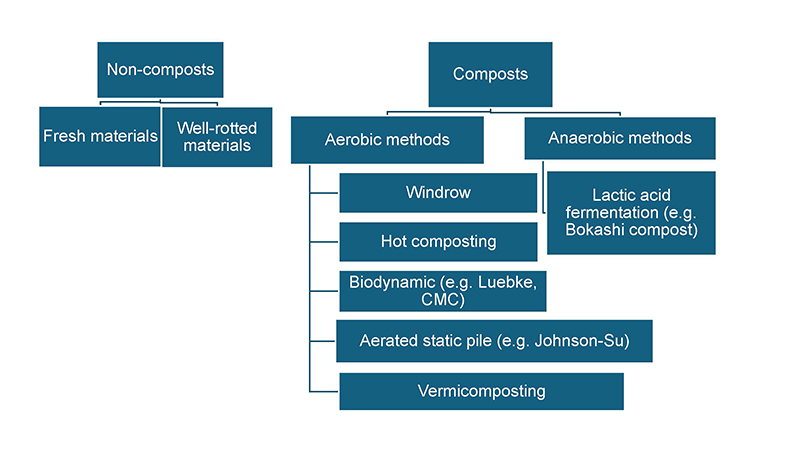
Preliminary messages from the report highlighted the value of biodynamic composting methods for improving soil health, drawing on the detailed studies conducted by the Swiss Institute for Organic Agriculture in the DOK trials. The use of fungal:bacterial ratios as indicators of soil health is discussed and the potential of liquid compost products (teas and extracts) to promote germination and suppress foliar diseases is assessed. The outcomes of this review will be used to formulate research questions for exploration in Phase 2 of the project.
The full report will be available on this web page once it is accepted for publication in a peer-reviewed journal.
Workshop delivered at Groundswell 2024: Innovations in Composting for Soil & Crop Health